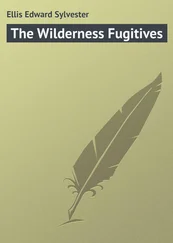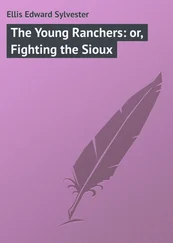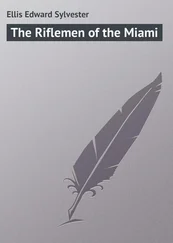Edward Ellis - The Ranger - or, The Fugitives of the Border
Здесь есть возможность читать онлайн «Edward Ellis - The Ranger - or, The Fugitives of the Border» — ознакомительный отрывок электронной книги совершенно бесплатно, а после прочтения отрывка купить полную версию. В некоторых случаях можно слушать аудио, скачать через торрент в формате fb2 и присутствует краткое содержание. Жанр: foreign_prose, на английском языке. Описание произведения, (предисловие) а так же отзывы посетителей доступны на портале библиотеки ЛибКат.
- Название:The Ranger: or, The Fugitives of the Border
- Автор:
- Жанр:
- Год:неизвестен
- ISBN:нет данных
- Рейтинг книги:3 / 5. Голосов: 1
-
Избранное:Добавить в избранное
- Отзывы:
-
Ваша оценка:
- 60
- 1
- 2
- 3
- 4
- 5
The Ranger: or, The Fugitives of the Border: краткое содержание, описание и аннотация
Предлагаем к чтению аннотацию, описание, краткое содержание или предисловие (зависит от того, что написал сам автор книги «The Ranger: or, The Fugitives of the Border»). Если вы не нашли необходимую информацию о книге — напишите в комментариях, мы постараемся отыскать её.
The Ranger: or, The Fugitives of the Border — читать онлайн ознакомительный отрывок
Ниже представлен текст книги, разбитый по страницам. Система сохранения места последней прочитанной страницы, позволяет с удобством читать онлайн бесплатно книгу «The Ranger: or, The Fugitives of the Border», без необходимости каждый раз заново искать на чём Вы остановились. Поставьте закладку, и сможете в любой момент перейти на страницу, на которой закончили чтение.
Интервал:
Закладка:
Edward Sylvester Ellis
The Ranger; Or, The Fugitives of the Border
CHAPTER I.
ZEB AND HIS MASTER
At the southern part of Ohio, where the river of that name swerves from its south-western course, and makes a sweeping bend toward the north-west, many years ago stood a large and imposing dwelling. Its character, so different and superior to others found here and there along the Ohio, showed that its owner must have been a man both of superior taste and abundant means. It had been built by Sir William Leland, who had emigrated from Europe with his young wife, and erected a home in the western wilderness. Here they lived a goodly number of days; and when, at last, they took their departure within a year of each other, they left behind them a son and daughter to cherish and inherit their home.
George Leland, at the time of which we speak, was but twenty, while his sister Rosalind was three years his junior. Yet both, with the assistance of a faithful negro servant, managed to live quite comfortably. The soil was exceedingly rich, and, with a little pains, yielded abundantly every thing that could be wished, while the river and wood were unfailing resources. Three years had elapsed since the elder Leland's death, and during that time, although living in a country swarming with Indians, nothing had occurred to alarm the fears of our friends, or even to give them the slightest suspicion that danger threatened them.
It was a pleasant day in early summer that George and his sister were seated in front of their house. The sun was just setting, and they had remained thus a long time. Zeb, the negro, was absent for the time, and they were thus undisturbed.
"Do you really think," pursued the sister, "it can be true that the Indians have perpetrated the outrages which have been reported?"
"I should be glad to think differently, could I have reason for doing so; but these reports certainly have foundation; and what is more alarming, the suspicion that we are not safe, which was awakened some time ago, is now confirmed. For two or three days I have detected suspicious appearances, and Zeb informed me that he discovered a couple of savages lurking around the edge of the forest. I fear there is strong reason to apprehend danger."
"But, brother, will not the kindness which our parents showed them while living be a guaranty of our protection?"
"It may, to some extent; but you must remember that there are hundreds of Indians who have never seen or heard of them, who would not hesitate to kill or take us prisoners at the first opportunity."
"Can it be possible?"
"It is not only possible but true. You remember Roland Leslie, who was here last summer? Yesterday I saw him up the river, and he gave me the information that I have repeated. At first I deferred mentioning it to you, for the reason that I did not wish to alarm you until it could not be avoided."
"Why did he not come here?" asked the sister.
"He said that he should shortly visit us. He had heard rumors of another massacre some miles up the river, and wished to satisfy himself in regard to it before calling here. Leslie, although young, is an experienced hunter and backwoodsman, and I have not much fear for his personal safety. He assured me that, should he find the Indians above ravaging the country as fearfully as reported, he would immediately return to us."
"I hope so," earnestly replied Rosalind.
"Still," continued George, "what can we do, even then? He intends to bring a hunter back with him, and that will make only three of us against perhaps a thousand savages."
"But have we not the house to protect us?"
"And have they not the forest? Can they not lurk around until we die of hunger, or until they fire the building? There are a hundred contingencies that will bar an escape, while I confess no prospect of getting safely away presents itself."
"We have arms and ammunition," said Rosalind. "Of course Leslie and his friend are good marksmen, and why can we not do enough to deter and intimidate the savages? Finding us well prepared, they will doubtless retreat and not disturb us again. I hope the trouble will soon be over."
"I hope so too; but it is hoping against hope. This war will be a long and bloody one, and when it is over the country will present a different appearance. Many lives must be lost ere it is done, and perhaps ours are among that number."
"Perhaps so, brother; but do not be so depressed. Let us hope and pray for the best. It is not such a sad thing to die, and the country which has given us birth has certainly a strong claim upon us."
"Noble girl," exclaimed George, "it is so, and we have no cause for murmuring."
At this moment Zeb appeared. He was a short, dumpy, thick-set negro, with a most luxuriant head of wool, a portion of which hung around his head in small, close braids, resembling bits of decayed rope. His eyes were large and protruding, and his face glistened like a mirror. He was a genuine African. Some of their qualities in him were carried to the extreme. Instead of being a coward, as is often the case with his nation, he seemed never to know when there really was danger. He always was reckless and careless, and seemed to escape by accident.
"Heigh! massa George, what's up?" he exclaimed, observing the solemn appearance of the two before him.
"Nothing but what is known to you, Zeb. We were just speaking of the danger which you are aware is threatening us. Have you seen anything lately to excite suspicion?"
"What was it, Zeb?" asked the latter.
"When I's out tendin' to things, I t'ought as how I'd sit down and rest, and 'cordin'ly I squats on a big stone. Purty soon de stone begin to move, and come to look, 'twas a big Injin.
"'Heigh!' says I, 'what you doin' here?'
"'Ugh!' he grunted.
"'Yes, I'll "ugh!" you,' says I, 'if I cotches you here ag'in.' With dat I pitches him two, free rods off, and tells him to make tracks fur home."
"Heavens! if you would only tell the truth, Zeb. Did you really see an Indian, though?"
"'Deed I did, and he run when he see'd me in arnist."
"And you saw others yesterday, did you?" remarked Rosalind.
"Two or free, down toward de woods. I spied 'em crawlin' and smellin' down dar, and axes dem dar business. Dey said as how dey's lookin' for a jack-knife dat dey lost dar last summer. I told 'em dat dey oughter be 'shamed demselves to be smellin' round dat way; and to provide against dar doin's in future, I give dem each a good kick and sent dem away."
"Do not exaggerate your story so much," said Rosalind. "Give the truth and nothing else."
"Qua'r, folks won't believe all dis pusson observes," said he, with an offended air.
"Tell the truth and they will in all cases; but should you deceive once, you will always be suspected afterward."
"Dat's it," commenced the negro, spreading out his broad hand like an orator to illustrate the point. "If I tells de truf dey're sure to t'ink I's lyin', and what's de use?"
"Zeb," commenced George, not regarding the last remark, "you, as well as we, are aware that we are encompassed by peril. You have seen that the Indians are constantly prowling around, and evidently for no good purpose. What would you advise us to do under the circumstances?"
"Give 'em all a good floggin' and set 'em to work," he replied.
"Come, come, Zeb, we want no jesting," interrupted Rosalind.
"Dar 'tis ag'in. Who war jestin'? Dat's what I t'ink is de best. Give 'em a good lickin', and set 'em to work clearin' off de wood till dar spunk is gone."
"Fudge!" said George, impatiently, turning his back toward Zeb, whose head ducked down with a chuckle.
"Rosalind," said George, "the best plan is certainly to wait until Leslie returns, which will be either to-morrow or the next day. We will then determine upon what course to pursue. Perhaps we shall be undisturbed until that time. If not, it cannot be helped."
Читать дальшеИнтервал:
Закладка:
Похожие книги на «The Ranger: or, The Fugitives of the Border»
Представляем Вашему вниманию похожие книги на «The Ranger: or, The Fugitives of the Border» списком для выбора. Мы отобрали схожую по названию и смыслу литературу в надежде предоставить читателям больше вариантов отыскать новые, интересные, ещё непрочитанные произведения.
Обсуждение, отзывы о книге «The Ranger: or, The Fugitives of the Border» и просто собственные мнения читателей. Оставьте ваши комментарии, напишите, что Вы думаете о произведении, его смысле или главных героях. Укажите что конкретно понравилось, а что нет, и почему Вы так считаете.












